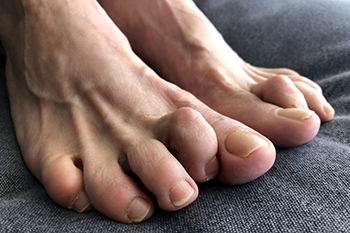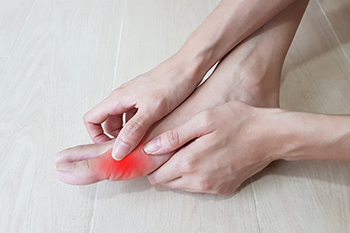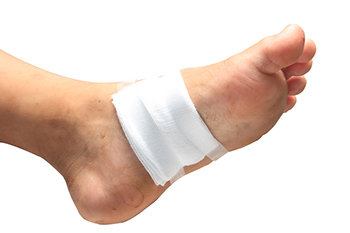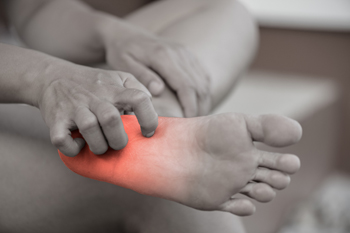
Hammertoe, a common foot ailment, unfolds as a deformity characterized by an abnormal bending of the toe joints. The condition primarily affects the second, third, or fourth toe, causing it to resemble a hammer's curved shape. One of the key causes of hammertoe is an imbalance in the muscles and tendons that control toe movement, leading to joint misalignment. Wearing ill-fitting shoes with narrow or high toe boxes can exacerbate the problem, cramping the toes and impeding their natural movement. Additionally, genetic predisposition and certain medical conditions, such as arthritis or diabetes, may increase susceptibility to developing hammertoe. Understanding the definition and underlying causes of hammer toe is essential for early intervention. If you have developed hammertoe, it is suggested that you visit a podiatrist who can guide you toward successful treatment and prevention methods.
Hammertoes can be a painful condition to live with. For more information, contact one of our podiatrists of InStride Family Foot Care. Our doctors will answer any of your foot- and ankle-related questions.
Hammertoe
Hammertoe is a foot deformity that occurs due to an imbalance in the muscles, tendons, or ligaments that normally hold the toe straight. It can be caused by the type of shoes you wear, your foot structure, trauma, and certain disease processes.
Symptoms
- Painful and/or difficult toe movement
- Swelling
- Joint stiffness
- Calluses/Corns
- Physical deformity
Risk Factors
- Age – The risk of hammertoe increases with age
- Sex – Women are more likely to have hammertoe compared to men
- Toe Length – You are more likely to develop hammertoe if your second toe is longer than your big toe
- Certain Diseases – Arthritis and diabetes may make you more likely to develop hammertoe
Treatment
If you have hammertoe, you should change into a more comfortable shoe that provides enough room for your toes. Exercises such as picking up marbles may strengthen and stretch your toe muscles. Nevertheless, it is important to seek assistance from a podiatrist in order to determine the severity of your hammertoe and see which treatment option will work best for you.
If you have any questions, please feel free to contact our offices located in Concord, Charlotte, and Salisbury, NC . We offer the newest diagnostic and treatment technologies for all your foot care needs.





